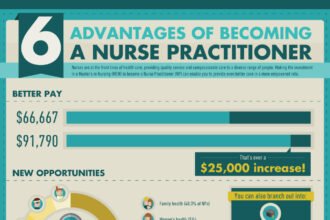Residency directors have a challenging job. They are entrusted with selecting young doctors and training them over the course of several years. Newly graduated medical students are thereby turned into internists, surgeons, radiologists, pathologists and the like. Fellowship directors build upon this foundation with extra training, setting the stage for these graduates to become clinical experts in their respective fields.
Residency directors have a challenging job. They are entrusted with selecting young doctors and training them over the course of several years. Newly graduated medical students are thereby turned into internists, surgeons, radiologists, pathologists and the like. Fellowship directors build upon this foundation with extra training, setting the stage for these graduates to become clinical experts in their respective fields.
The Maintenance of Certification (MOC) process adds an additional and continued requirement once doctors achieve their initial board certification, but the entire process has come under unified, multispecialty criticism.
Another article critical of the certification process noted that program directors already know plenty about the qualifications of their trainees, and seemed to suggest that program directors’ power to hold back or terminate trainees could reduce the need for the post-residency certification (and recertification) process.
It can be said that the ability to pass tests does not equate with the ability to practice ethical, high-quality medicine. People who are good at passing tests (i.e. the majority of people who get into medical school) can keep doing it right through board certification. But is that a good use of time and resources? Likely not, and this is one reason why MOC has been criticized as little more than a Trojan Horse to maintain certifying board revenue.
However, there is a question whether residency directors can effectively manage their trainees, as they once did. In past decades, residency directors’ power was near absolute, and many programs (especially surgical fields) ran pyramid structures that only graduated a few of the trainees each year. Residents knew they were under the microscope every day, and continued progress in the program was not assured. The old pyramids have been eliminated, although that is not the key problem. The evidence shows that few residents are ever actually dismissed from training. Even problem residents – as many who have been in a residency can anecdotally support – are often nudged along and graduated. This is easier than firing them, which is often a costly and difficult endeavor.
This is not an easy topic to get data on, but the 2009-10 annual report of the Accreditation Council for Graduate Medical Education (ACGME) suggests that firings are in fact rare.
Of 111,140 full-time residents, 261 (0.2%) were dismissed. Even counting the 112 (0.1%) who Unsuccessfully Completed Program (seems an odd word choice), the 96 (0.09%) who went on Leave of Absence, and the 943 (0.8%) who Withdrew, only 1.3% of all residents were somehow taken out of programs every year. That seems like a small number, and perhaps represents directors’ aversion to taking hard action against sub-par trainees.
Certifying boards may say this is why post-residency evaluation is essential. But failure in (or noncompliance with) certifying exams cannot keep sub-par physicians from practicing, though it can reduce their options.
The MOC process is imperfect, and stands to be simplified, improved, and made less expensive. Concurrently, the discretion of program directors to remove sub-par trainees should be increased. They should also be empowered to direct a simplified initial certification process culminating in the final month of residency.
This can ensure that well-qualified people complete residencies with their initial certification, and can later maintain their qualifications with a sensible and cost-effective MOC process.







